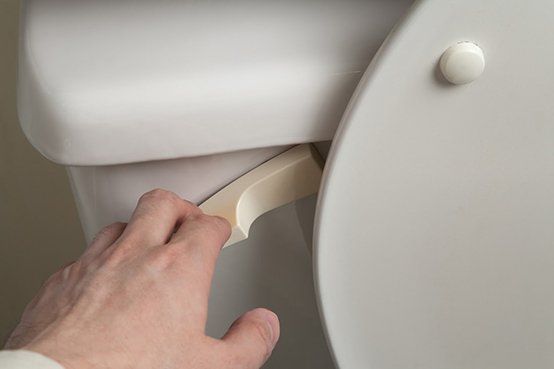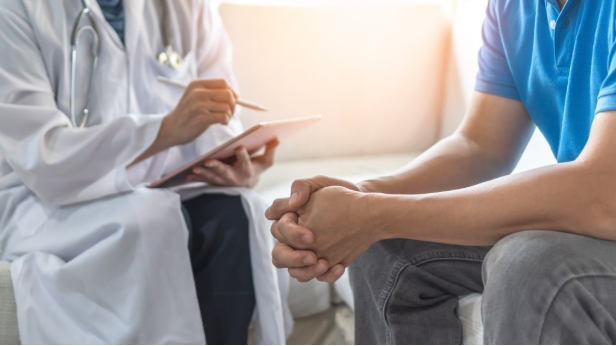PARAMOUNT SURGERY CENTER LLC
Call Us Today! (502) 893-7744
The Top Hemorrhoid Diagnosis and Treatment Questions Answered

Do you have hemorrhoids? You aren't alone. According to the Harvard Medical School, over half of Americans experience hemorrhoid symptoms by age 50. If this is your first experience with hemorrhoids, take a look at some of the most common questions patients have about diagnosing and treating this often-irritating issue.
Are There Different Types of Hemorrhoids?
Not all hemorrhoids are the same. Your doctor will classify your hemorrhoids by the location on your body. The two primary types of hemorrhoid are internal and external.
Like the name implies, internal hemorrhoids are inside of your body. More specifically, these strained veins are located inside of your rectum. You won't see or feel them unless they prolapse (fall or push through) the anal opening.
External hemorrhoids, like the internal variety, are also named for the body location where they're found. These swollen veins develop under the exterior anal skin. The exterior location means you can see, and typically feel, these hemorrhoids.
Do Hemorrhoids Hurt?
There's no easy, or universal, answer to this question. Many patients with internal hemorrhoids experience little to no pain. While some people do feel a sense of fullness or mild discomfort, pain may signal a more serious issue or a prolapsed hemorrhoid.
External hemorrhoids are often more painful than the internal variety. Along with pain or discomfort in the anal area, external hemorrhoids may lead to swelling, bleeding, itching, and irritation.
Do All Hemorrhoids Bleed?
While bleeding is a possible sign of hemorrhoids (either internal or external), it isn't always present. If you strain during bowel movements or have diarrhea, you may notice bright red blood from internal hemorrhoids. Even though this may seem strange or scary, when associated with hemorrhoids, bleeding doesn't necessarily signal a serious problem.
Like internal hemorrhoids, the external type may also bleed — especially if the anal area is irritated during or after bowel movements.
Even though hemorrhoid-associated bleeding isn't typically a major problem, other conditions and diseases of the colon, rectum, or anus can also cause unexplained bleeding. Never assume blood is related to hemorrhoids. Instead, contact your doctor for a rectal examination. Only a qualified medical provider can evaluate and diagnose anal bleeding.
How Does a Doctor Diagnose a Hemorrhoid?
The medical provider will take a health history, listen to your physical symptoms, and examine the area to determine whether you have internal hemorrhoids, external hemorrhoids, or another issue. The exam may include a digital rectal exam to feel the area or the use of an anoscope (a thin, lighted tube) to see inside the anal area.
Does Hemorrhoid Diagnosing Hurt?
A rectal exam isn't one of the most comfortable trips to the doctor's office. But that doesn't mean it will hurt. While you might experience some pressure and discomfort (especially if you're nervous and tense the surrounding muscles) you shouldn't feel pain. The doctor will gently examine the area and do everything they can to minimize discomfort and ease anxiety.
What Treatments Are Available?
After the medical provider diagnoses your hemorrhoids, they'll help you to feel better with a treatment plan. The specific treatment depends on whether you have internal or external hemorrhoids. There are a variety of options, including both surgical and non-surgical strategies.
Smaller hemorrhoids that cause little discomfort may go away on their own. The doctor may recommend a high-fiber diet, increased water intake, or increase physical activity to reduce symptoms and prevent a reoccurrence.
If lifestyle changes don't help, the doctor may suggest over-the-counter ointments or pads (for external hemorrhoids) or prescription suppositories (for internal hemorrhoids). Internal hemorrhoids that don't respond to conservative treatments, are prolapsed, or cause pain may require rubber band ligation, infrared coagulation, or surgical removal.
Do you need something more than an over the counter hemorrhoid treatment? Contact Kentuckiana Gastroenterology & Paramount Surgery Center for more information.
Kentuckiana Gastroenterology & Paramount Surgery Center
BUSINESS INFORMATION
Phone: (502) 893-7744
Email: gastrodoc@twc.com
Address: 1003 Dupont Sq. N Ste 9a, Louisville KY 40207
SOCIAL MEDIA
BUSINESS INFORMATION
- Mon - Fri
- -
- Sat - Sun
- Closed
By appointment only
PAYMENT OPTIONS

















